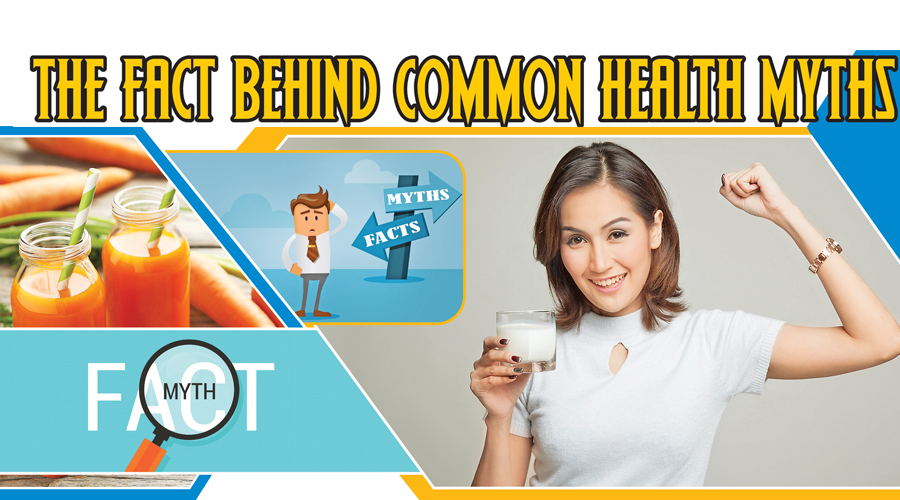Salt therapy – All you need to know
- 24 Feb - 01 Mar, 2024

As children, we’ve all grown up with stories passed down to us by our elders to help us lead better, healthier lives. But just how many of these old wives’ tales bear any factual accuracy? We take a look at some of the common tales we’ve been told and the truth behind them.
Those of us who can’t get through a day without our spectacles perched on our noses have probably heard this more than once: eat more carrots and your eyesight will be better! While carrots are a great source of Vitamin A, this myth is actually attributed to the British military during World War II, who said that eating carrots could improve the night vision of pilots. However, research has shown that although Vitamin A can be helpful for age-related macular degeneration (AMD), the Vitamin A in carrots are not likely to prevent the need for glasses. The bottom line is, it’s good to eat carrots, but don’t expect it to give you 20/20 vision!
During your younger years, you may have been told that if you swallowed chewing gum, it would take seven years to fully digest. And perhaps, you may even have shared this warning with your own children. The reason behind this belief because the ingredients used in gum cannot be broken down, leading many to believe that the gum will just stick to the insides of our intestines, slowly making its way out. In reality though, these small pieces of gum usually find their way out of your body along with the rest of your food when you empty your bowels. So, unless you are swallowing a huge amount of chewing gum every day, you’re not going experience gum clogging up your insides.
There is some element of truth to this “fact” as sitting too close to the television for extended periods can strain your eyes and cause it to ache. However, doing this regularly does not actually spoil eyesight nor would it cause short-sightedness. Modern research has found a lack of link between staring at a lit screen for hours on end and worsening eyesight, attributing the birth of this belief to high radiation levels emitted from television sets before the 1950s. As modern televisions are equipped with proper shielding, radiation from the TV screen would likely not affect your eyesight negatively at all.
Those who constantly crack their knuckles may notice themselves developing swollen hands or reduced grip strength, which could be the origins of “knuckle-cracking causes arthritis” myth. While it’s definitely a bad habit as there have been cases of people injuring themselves as they attempt to crack their knuckles, none of this is actually indicative of arthritic symptoms. Studies and comparisons have found that there is no correlation between cracking your knuckles and developing arthritis. It’s good to break this habit, but if you catch yourself doing it still, don’t let it worry you too much.
It’s true that your bones require calcium to be healthy, much like how calcium can be found in milk. The older we get, the more we feel a need to up our calcium intake to reduce risk of bone fractures and this is where milk comes in to help us. However, various studies conducted point to a lack of association between the risk of fractures and calcium intake. Other studies suggest getting calcium supply from leafy greens or beans. This doesn’t mean that milk is bad for you, it just means that it’s not as effective in combating bone fractures.
After a particularly intense workout that gets you drenched in sweat, you may have weighed yourself and discovered that you’re lighter than before you started your session. Some take this to mean that more fat has been burned but this isn’t actually the case. Sweat is released as a way of cooling the body when your body temperature increases, and most weight loss that happens immediately after exercising is usually only water weight loss – which you would gain once you rehydrate.
While some of these health “facts” do sound plausible, it’s always good to be aware of what is sound and what is not so that we don’t spend all our time worrying unnecessarily.
COMMENTS